Summary
- A new DC graphic novel by Ngozi Ukazu, Barda, explores Barda's early years as she rises to lead the Female Furies.
- Ukazu transitions from webcomics to DC Comics to write about Barda, inspired by Jack Kirby's New Gods lore.
- Barda's story delves into themes of love, self-discovery, and bravery against tyranny in the backdrop of the Fourth World.
This June, the Justice League's inimitable warrior, Big Barda, stars in her very own Young Adult graphic novel from DC Comics. Ahead of Barda's release, writer/artist Ngozi Ukazu spoke with Screen Rant about how she discovered New Gods lore, working on DC characters after the success of her original webcomic Check, Please!, and — of course — the power of love in superhero storytelling.
Barda follows the titular character in her early years, just as she's been promoted to leader of the sadistically cruel Female Furies — all while being manipulated by her "guardian" and boss, Granny Goodness, agent of Darkseid. But everything Barda knows about Darkseid, Apokolips, Granny, and her own existence are about to change once she meets Granny's latest prisoner: Scott Free, soon to be known as Mister Miracle.
|
BARDA (2024) |
|
|---|---|
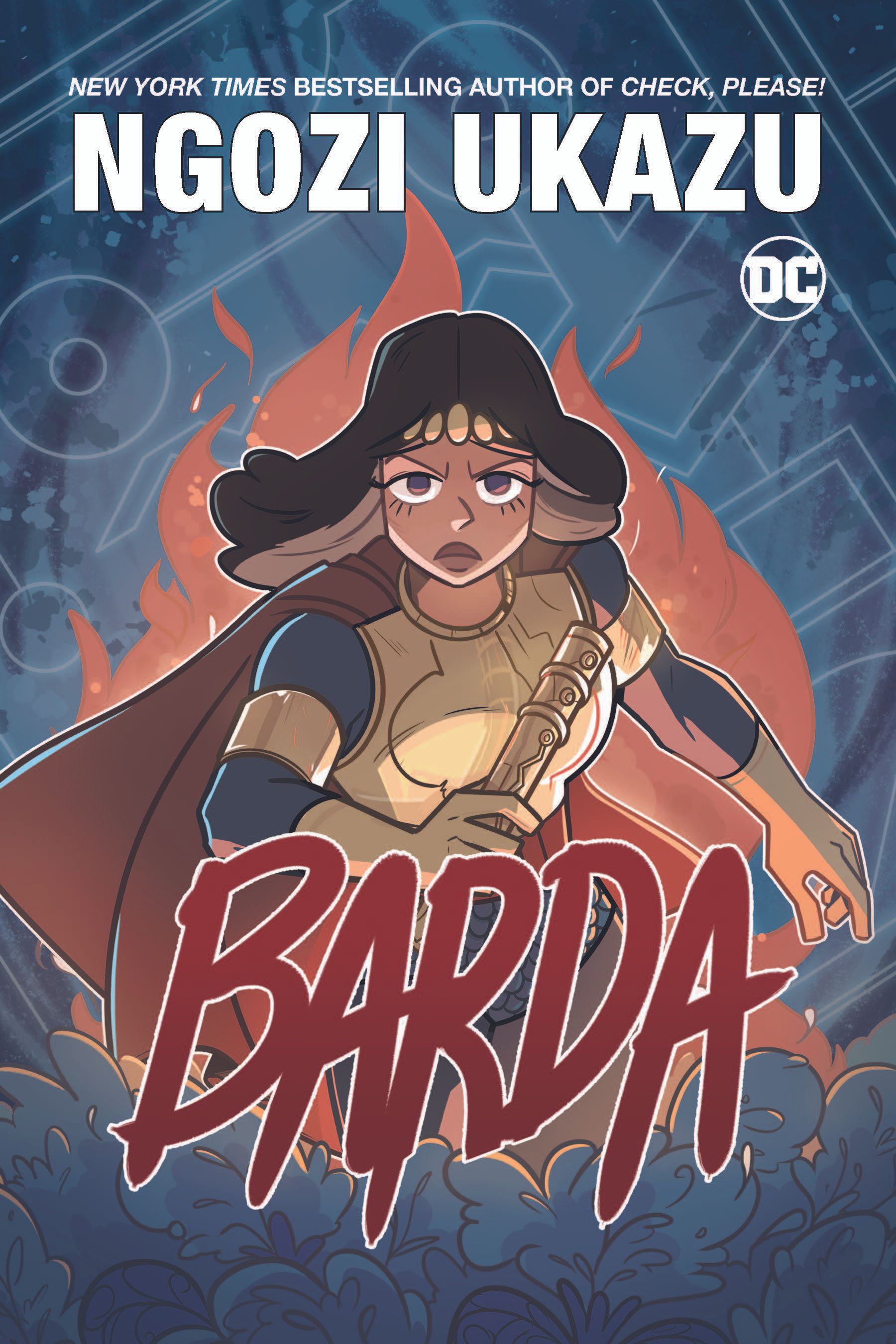
|
|
|
Release Date: |
June 4th, 2024 |
|
Writer/Artist: |
Ngozi Ukazu |
|
Letterer: |
Wes Abbott |
|
Cover Artist: |
Ngozi Ukazu |
|
Join New York Times bestselling writer-artist Ngozi Ukazu (Check, Please!) as she takes readers on an unforgettable journey of self-discovery, deep friendships, and first loves! Darkseid is...and life on Apokolips is tough--but then, it is hell, after all. And no one knows this better than Barda, Granny Goodness's right-hand warrior. But Barda has a secret...she is in love. Or she is drawn to the idea of it, anyway, whether it be the beauty of a flower; her affection for her closest friend, Aurelie; or the mysterious and fierce enemy warrior Orion, who is the only match for Barda's strength. When Granny decides Barda is becoming too soft, she assigns Barda a task that might be more than she can handle--to break the seemingly unbreakable Scott Free. And as Barda questions why Scott has such hope and what he might have done to provoke such hatred from Granny, she finds herself drawn to him in a way she never expected. The only thing is, we do not speak of love on Apokolips... |
|
Along with a short story in May 28th's DC Pride 2024 #1, Barda marks Ukazu's DC Comics debut as a writer/artist, but she's already a best-selling comics creator thanks to her smash hit webcomic, Check, Please!, which originated on Tumblr and was eventually published by First Second. Along with artist Mad Rupert, Ukazu also published Bunt!: Striking Out on Financial Aid with First Second earlier this year. But her love for the DC Universe and the Fourth World is clear as a sunny day on New Genesis; read on for Ukazu's full interview with Screen Rant.
Readers new and old can rediscover the chaotic, romantic, hockey-bro fun of Check, Please! for free on Webtoon, where Ukazu is releasing chapters weekly.
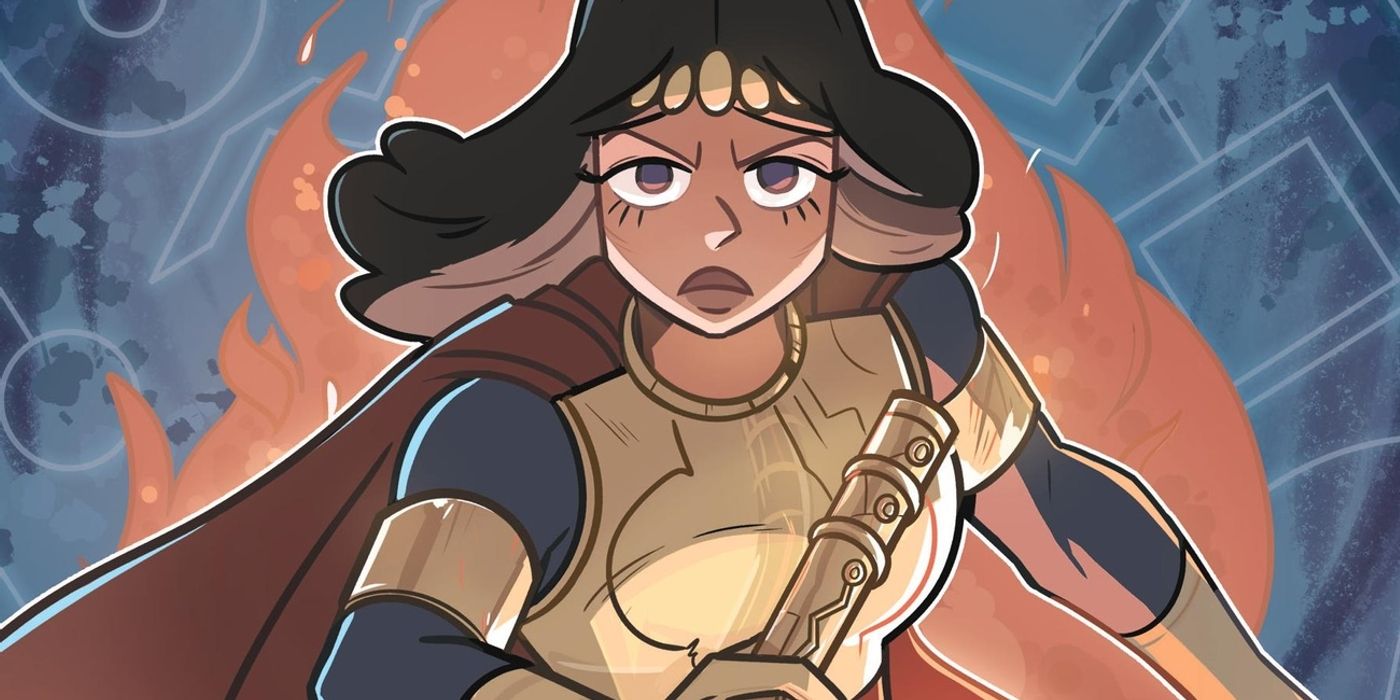
DC’s BARDA Gives The New God Warrior A Graphic Novel of Her Own (Exclusive)
Screen Rant has all the details on Barda, a new YA graphic novel that reveals the backstory of the iconic New God and her path to self-discovery.
Ngozi Ukazu Discusses Moving from Webcomics to DC Comics, Jack Kirby's Influence, Romance, & Much More
Barda Is DC's Latest YA Graphic Novel
Screen Rant: Between Bunt! [with Mad Rupert] and Barda and your forthcoming graphic novel, I wanted to ask you what it's been like moving from the webcomic scene and the DIY kind of stuff to full-stop graphic novels — working on a full form as opposed to the piecemeal form that is a webcomic?
Ngozi Ukazu: I mean, the biggest difference between working on serialized comics versus entire graphic novels is your interaction with the audience. When you're working on a serialized comic like a webcomic, you are posting, and they're reacting, and you're feeding off the reaction, and you're posting. Whereas working on a graphic novel, and working on something like Barda, it's totally different. I'm pretty much only interacting with my editor and the assistant editor to form this idea, to flesh out this idea. And you release it all at once! Which is kind of scary, kind of exciting.
DC Comics, it's like returning home!
And the further difference is that, you know, with Check, Please!, those were my original characters. I was making it up as I went, sometimes. Not really? But kind of. But also yes. Whereas with DC I'm dealing with characters that are like, thirty, forty, fifty, sixty years old. So it's been a totally different experience.
I grew up reading DC Comics. Honestly, webcomics were more of a foray into something new, whereas DC Comics, it's like returning home! That's a sound bite for you. [Laughs]
SR: [Laughs] Yeah, that is like, a perfect pullquote, so thank you. What got you interested in the New Gods lore in particular in the first place? So you grew up reading DC, how did you end up working on Barda?
NU: I really think my first introduction was an episode of Justice League Unlimited, written by [J.M.] DeMatteis — of the DeMatteis, [Kevin] Maguire, [Keith] Giffen wonderful trio that created JLI [Justice League International] — and it was about Barda and Scott and Scott having to return to the X-Pit. I love when the characters have to return to the places they escape.
The Justice League Unlimited episode starring Big Barda and Mister Miracle, "The Ties That Bind," is available to stream on Max and Netflix.
And it was this thing of like, looking at these characters being like— okay, we are no longer talking about the main Justice League, who are these other characters? And then getting to see them in the other comics. So going to JLI, because Barda and Scott were part of the JLI, going to the other interpretations of Barda and Scott in the ‘80s and ‘70s, kind of peeking at those.
But then again, I actually did not know as much about the Fourth World. And when I wanted to develop these characters, when I pitched Barda to DC, that was when I finally was like, “let me go deep into these original comics.” Mister Miracle, New Gods, Forever People, that entire trio of series that Jack Kirby released all at once. Like, I know he was a little bit older than [me]. I think he was in his 40s, maybe even 50s, when he finally moved to DC, but the idea of working on— I mean, but then again, I guess this is King Kirby, he would do, like, a bazillion pages a day, so that wasn't stressful for him. It probably was, but.
Yeah, that's when I returned to those original comics, and just went— I think I've read— [gestures at Mister Miracle trade paperback] like this is the Mister Miracle omnibus. But I read the New Gods omnibus like, three times over, just absorbing it.
Ngozi Ukazu Knows What Makes Barda Strong
Big Barda Was Created by Jack Kirby in 1971's Mister Miracle #4
SR: Yeah, my Forever People trade is behind me, always, so I get that impulse. We're totally going to come back to Jack Kirby and Kirby's Fourth World in particular. But I wanted to ask, because this is about Barda in particular, because in 2024 we're so used to seeing Barda as a super confident brawler with a really strong sense of justice— but that's not really the case in this YA tale, which makes sense for the YA genre. Because she's struggling to understand her place on Apokolips and her place among other people. So what makes this young version of Barda such a compelling protagonist?
NU: Young Adult stories are some of my favorite stories to tell because they are coming-of-age stories. They're characters figuring out their place in the world, figuring out who they are. And when we see Barda, yeah, usually she is fully formed. A lot of superheroes that we see, they all have their origin story, and then they have them out in the field, out on the streets, out in the cosmic landscape, in Barda’s case.
What makes [Barda] strong is her fierce desire to protect, fierce desire to appreciate beauty, and her bravery against fascism and tyranny.
With Barda, I— I always think the phrase "strong female protagonist" or "strong female character" is interesting. Usually it's a little overdone, and for me, it kind of signifies like, “oh, this character is going to be boring.” This is usually written by a person who doesn't really understand what female strength looks like [laughs]. Where, with Barda, what makes her so strong is: yes, she has tons of muscles. Yes, she can, like, literally throw a spaceship at another spaceship. But what makes her strong is her fierce desire to protect, fierce desire to appreciate beauty, and her bravery against fascism and tyranny. That's what makes her strong.
But because she starts in a place where she believes in Darkseid and she believes in Apokolips and she believes what Granny Goodness tells her, the bravery of her breaking away from those old beliefs, that's what makes her strong. And that's what makes her such a lovable character! Very few superheroes have a villain origin, so it's so cool to see Barda— like, I get to write Barda going through that character arc.
Big Barda fans are in luck: Barda is currently co-starring in Birds of Prey by Kelly Thompson and Leonardo Romero, available now from DC Comics. Be sure to check out Birds of Prey #4 in particular, which features a thrilling face off between Bard and Wonder Woman herself.
Jack Kirby's Shadow Looms Large in Barda
Ukazu Discusses the Influence of "the King"
SR: You know, reading Barda the other day, I was really struck by the fact that you're essentially writing a prequel to what happens in Kirby's original Mister Miracle, which is wild to me! One of the most influential comics creators of all time, if not the most influential, and you're writing a prequel to his character and his story. What was it like navigating the influence of Kirby and pulling from his story to create Barda’s origin story?
NU: It was really inspiring. Jack Kirby is— I really do think he is the most influential comic book creator — in terms of superhero comics at the very least — because if he didn't create an iconic character in DC and Marvel, he had a hand in designing them.
So the interesting thing with New Gods, Mister Miracle, and Forever People, those series that he launched all at once, is that he was the writer, illustrator, and also editor [laughs]. Which, so cool, truly, like, a feat. But I do think that there could have been a little bit of editing to tease out some more things in the story.
Because he was an idea factory! The fact that in like, New Gods issue one, he introduces Orion, Highfather, Lightray, the concept of New Genesis and Apokolips, Darkseid, Kalibak, all in one issue?! No one can do that. But with a character like Barda, he also introduces her with a bang. I think she just shows up in Mister Miracle, and we're like, "Oh, okay, this is a fantastic character." We don't know much about her.
So all I really was doing was taking that raw creativity and asking a few questions and just saying like, “let's ground this a little bit more here and here.” Let's see how Barda’s life was actually living with the Female Furies. Let's see how she and Scott talk throughout a scene. Just asking a few questions to fill in the gaps there.
SR: One of my personal favorite ways that you filled in the gaps was the introduction of the idea of variables to the Anti-Life Equation. I thought it was really cool and moving how it happens throughout the story, and, you know, the original Fourth World books, like you're saying, are big idea factories and really allegorical. Like really allegorical. Can you talk a little bit about the big allegories, Kirby's big allegories, and how you interpret them?
At the end of the day, [Kirby's characters] really do fiercely fight for good.
That's a very good question because, you know, Jack Kirby— nothing about his work is subtle. Even the way he draws, but the stories themselves are of huge, epic proportions. He was drawing from mythology. He was drawing from the Bible. He was drawing from really ancient texts to get to the depth of like, "What is good? What is evil? What is worth fighting for?"
And I, I mean— [stumbles, through laughter] it's so funny to go to Jack Kirby from writing Check, Please! [Both laugh] Check, Please! is like, “Okay, what boys are cute, and how can I make them kiss.” Where Jack Kirby is like, “There was a time when the Old Gods died and the New Gods took their place.” It's like, a little different.
And I just wanted to honor that passion and honor those feelings, because in interviews that I read, he talks so much about the idea of freedom and how that is truly the thing he values most. Maybe he was responding to his lack of freedom, because he was working at Marvel, I don't know.
But I think he was talking in general of just this idea of freedom, because he fought in World War II, grew up in the ‘30s, ‘40s, ‘50s. And honoring that is just making sure that these characters are a little bit of— they're a little bit iconic. They can have their complications, but at the end of the day, they really do fiercely fight for good.
SR: Those big ideas are just so, so big. It's interesting to me, hearing people respond to Kirby's Fourth World because it's just, like you're saying, iconic in that kind of classic definition sense of: here's an image, what does it mean?
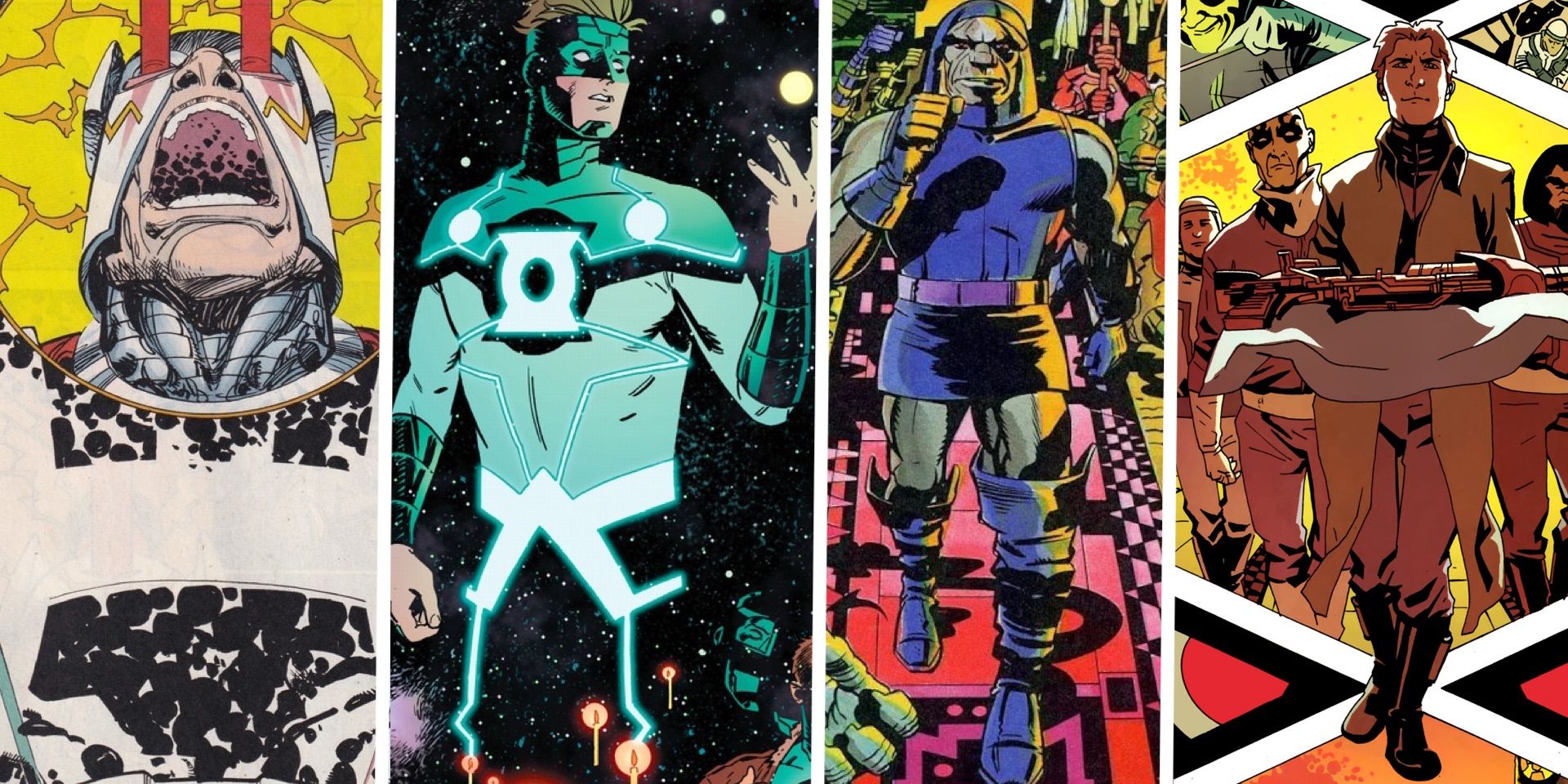
10 Best Stories From Jack Kirby's Fourth World
Jack Kirby's Fourth World comics remain an important part of the DC Universe, and many are considered amongst the best stories in the medium.
Barda's Story Embraces Love of All Kinds
Including Her Iconic Romance with Mister Miracle
SR: I love that you also brought up the differences between Check, Please! and Kirby. Making boys kiss, everyone's favorite activity on the Internet! Because, well, I mean, in Mister Miracle, right, there's that really touching moment near the end Kirby’s run where Barda and Scott finally, you know—
NU: Randomly get married!
With Barda, she has all of these examples of where she wishes there would be love.
SR: It’s like, so random, but so like: Oh my god, love is so real. And Barda — your Barda — is undeniably a romance as well. Why do you think romance is such a beloved genre, especially as part of superhero fiction? And why is love of all kinds intrinsic to Barda’s story?
NU: Oh, that's such a great question. So first, why is romance part of superhero stories? I think you can look at it from the traditional sense of, like, “Oh, all of these heroes need a damsel in distress to rescue.” But I also think that the romantic interest of protagonists, of heroes, correlates with whatever the main character is lacking. Obviously, with Lois [Lane] and Clark Kent, we have a more mild-mannered reporter — and also a gentle giant as a superhero — paired with this fierce, very outgoing character in Lois.
With Barda and Scott, her romance is tied to her more existential needs. Like, she's in love with Scott. She immediately falls in love with him. But she also loves how he represents rebellion and freedom and good and justice — and beauty, I guess, too, because I guess he's beautiful [laughs].
It's so funny, because when we usually traditionally speak of “all sorts of love,” the phrase nowadays kind of connotes people with different sexualities. And I think there are all sorts of ways to be in love. There's platonic love, there’s love between parents and children, and with Barda, she has all of these examples of where she wishes there would be love. She wishes Granny were more of a maternal figure. She probably wishes she had friends in the Female Furies, but they're really just coworkers.
Every time you have someone who has unconditional love for you in your life, it bolsters your ego. It gives you place and meaning. That's what Barda truly wants in life. There are so many places in the book where she says “We do not speak of love on Apokolips,” and she's talking about Granny Goodness, she's talking about the Female Furies, and she's talking about Scott. But when she finally finds one person who loves her, despite everything, that's the fire. That sets a fire underneath her.
Ngozi Ukazu Continues to Explore the Fourth World
What Do Big Barda and Darkseid's Son, Orion, Have in Common?
SR: I could ask you like a million more questions. I could talk about the Fourth World literally all day.
NU: Me too!
SR: But we'll keep it to one more, because I feel like I must ask you about Orion and Lightray, who show up in cameo roles in this story. But you do make a point of talking about Orion's switch with Scott, which is so intrinsic to the whole Fourth World thing. So I have to ask, because inquiring minds must know, do you have any ideas or interest in telling Orion’s story, in doing more with that?
I did see, right before [we started], your post on [X] about DC Pride, so—
NU: [Laughs]
SR: So here's an invitation to talk about what you're doing there! [Laughs]
NU: So, in DC Pride, issue one, the 2024 version, that anthology comes out May 28th [ed. note: available now]. I have a story about Jackson Hyde, who is Aquaman, as he goes to the Fourth World. And he meets Orion of all people! Like— why?!
I'll try to keep it short. All I will say is like, you know, it'd be super great if I could work on a sequel, maybe exploring Orion, maybe exploring what Orion thinks love and belonging is? We'll see what happens with that. You know, crossing my fingers. But you'll be the first to know if I get to do a similar graphic novel. It wouldn't be called Barda, it would be called Orion. But we'll see if that happens, right?
Thanks so much to Ngozi Ukazu for taking the time to talk all things Big Barda and Fourth World. Barda, an unmissable book for Fourth World fans, is available June 4th from DC Comics.
Source: Ngozi Ukazu
https://news.google.com/rss/articles/CBMiUmh0dHBzOi8vc2NyZWVucmFudC5jb20vYmFyZGEtc2NvdHQtZnJlZS1kYy15YS1ncmFwaGljLW5vdmVsLW5nb3ppLXVrYXp1LWludGVydmlldy_SAQA?oc=5
2024-05-29 19:30:00Z
Bagikan Berita Ini


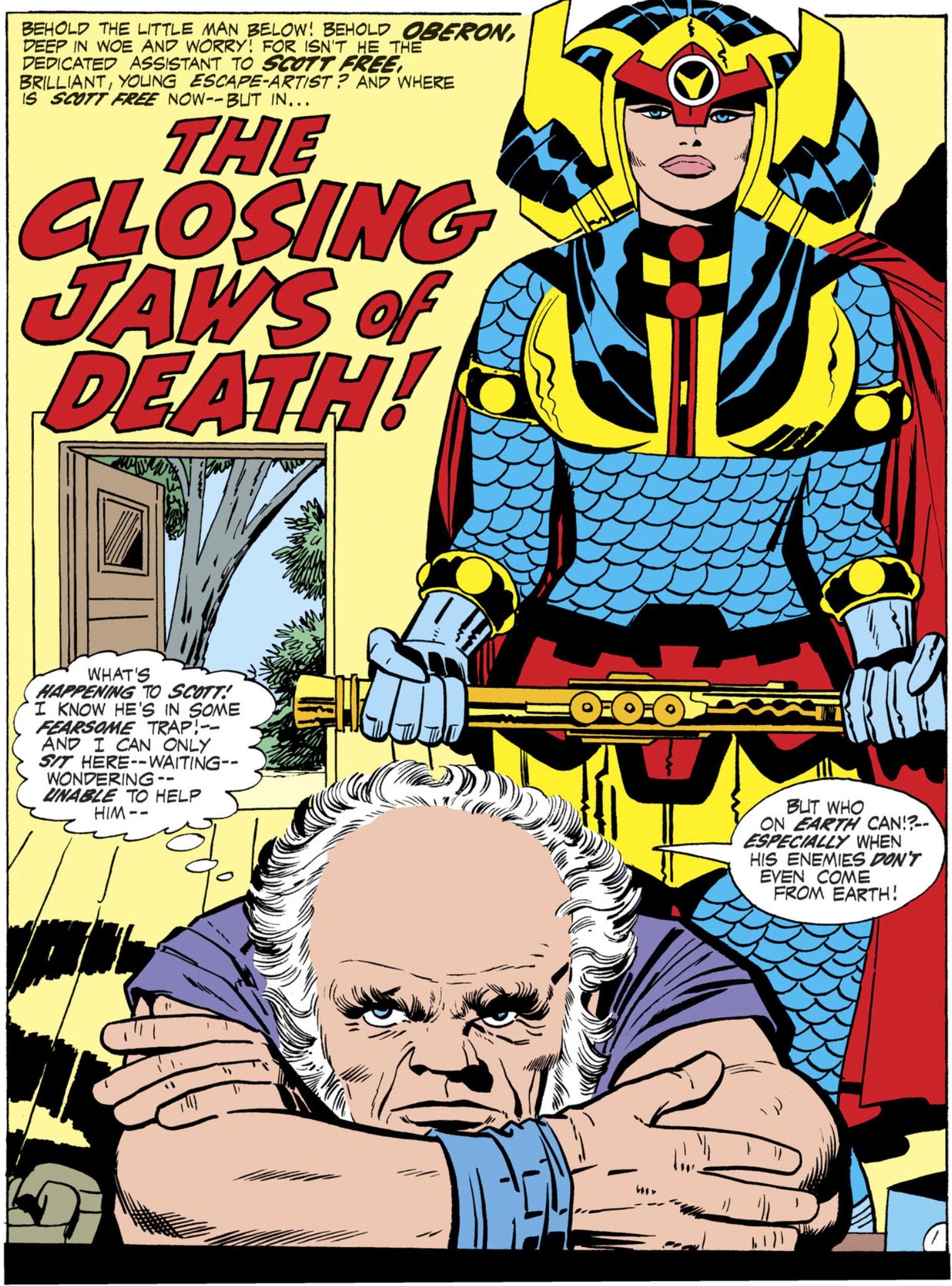
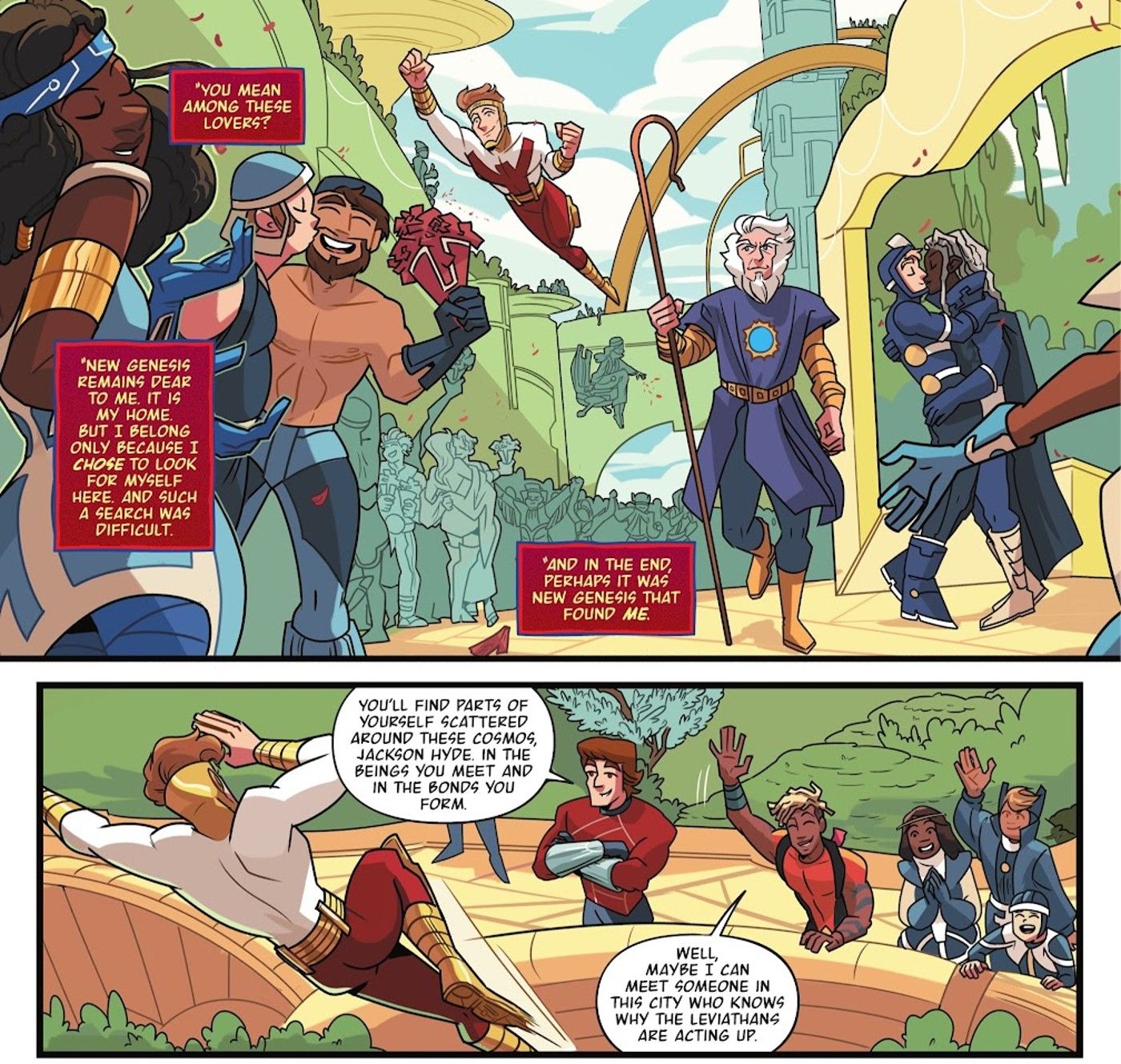















0 Response to ""We Do Not Speak of Love on Apokolips": BARDA Gives Justice League Unlimited's Fan-Favorite Couple an Essential ... - Screen Rant"
Post a Comment